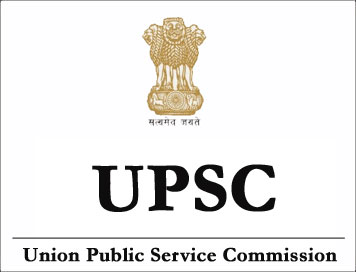Writing accurate and appropriate answers in UPSC Mains is very much required. Many aspirants always says that– “I work hard, read so much, every year I write mains, yet I fail to qualify for the Interview. Even if I qualify, I end up getting just 4-5 marks more than the cut-off. I am confused.”
Or this – “I attempted all the questions and wrote relevant points which I had read from my own notes. Yet, I fail to understand why UPSC has given me so less marks! I hate UPSC“.
Hating UPSC doesn’t help in this matter. Instead, one has to introspect if what they wrote was indeed a ‘right answer’ to the questions in the examination. Try to think that Did I really ‘analyze’ the question, or ‘examined it critically’, or as the question demanded, did I ‘evaluate’ the question and answered accordingly?”
Majority of you would agree that in the heat of the exam we seldom answer accurately to the question. We ‘explain‘ instead of ‘examining’ the question; or we just ‘enumerate‘ many points in the hope of filling the answer with ‘relevant points’ when the question was indeed asking you to ‘critically analyze‘.
UPSC asks different kind of questions to test your analytic and critical abilities, which are necessary for any aspiring candidate to function impartially when he becomes an officer.
Bureaucrats, in their day-to-day business have to deal with many situations that tests their analytic and critical abilities. They ‘discuss‘ issues with their colleagues or subordinates; they have to ‘analyze‘ various factors before taking a final decision; they need to ‘examine‘ a case to assess its merit; they have to ‘evaluate‘ a situation before passing an order; and they may have to ‘comment‘ on different files based on empirical evidences.
These skills will enable you to form an unbiased opinion or judgement in such diverse situations.
So what is the way forward?
Tips For Writing A Better Answer
Two important factors decide the good outcome of your answer: one, understanding the question completely. Second, sticking to the word limit.
To understand a question fully, one must know that a question has keywords. Every question has a ‘topic’ and a ‘directive’.
For example,
” Gandhian strategy of non-violence and satyagraha had its own limitations”. Examine.
In the above question, the topic is ‘limitations of Gandhian strategy of Non-violence and satyagraha‘ and the directive is ‘Examine‘.
If we give an ‘explanation’ to this answer how Gandhian strategy had limitations and how it affected Freedom struggle, the examiner is sure to give less than average marks. Instead, the directive points us towards a definite course of answering, here, ‘examination’ of the statement.
So, what does ‘Examine’ precisely mean?
Before we move to that, one should know that UPSC often gives many other directives in its questions and each demand a precise answer. Frequently used directives are, ‘Examine’, ‘Comment’, ‘Analyze’, ‘ ‘Evaluate’, ‘Discuss’, ‘Critically Examine’, Critically Comment’, ‘Critically Analyze’ and ‘Assess’.
- Examine and Critically Examine
When you are asked to examine, you have to probe deeper into the topic, get into details, and find out the causes or implications if any .
In the case of above question on Gandhi’s strategy, you have to probe the details of his strategy, find that if it really had limitations and provide a balanced view. All within a given word limit.
When asked to ‘critically examine‘, as in the following question,
“In the context of the growing demands for the ban of endosulfan in the country,’critically examine‘ the issues involved.What, in your view, should be done in the matter?” (2012, Paper-I)
In this question, you have to probe in detail two aspects: one, good and bad of Endosulfan. Second, implications of its ban. And arrive at an unbiased conclusion.
When ‘critically’ is suffixed or prefixed to a directive, all you need to do is look at the good and bad of something and give a fair judgement.
- Comment and Critically Comment
The directive ‘comment’ is usually followed by a statement made by some famous personality, or taken out from a famous book. When you are asked to comment, you have to pick main points and give your ‘opinion’ on them based on evidences or arguments stemming from your wide reading.
Your opinion may be for or against, but you must back your argument with evidences.
These types of question offer you a chance to consolidate your reading of different subjects to justify your opinion.
Example,
“There is an urgent need for the Planning commission to revise the chapter on health in the 12th Five year Plan document”. Comment (GS-I 2012, UPSC)
Your answer to this question must contain your opinion backed by certain evidences. If you agree with the statement, first mention what are the shortcomings in the chapter on health and offer your opinion in the form of suggestions backed by data from certain reports or committees.
Critically comment is also forming opinion on main points but in the end you have to provide a fair judgement.
Example,
Critically comment on the extent, scope and implications of Non Communicable Diseases in India.
To this question most of us tend to provide facts on extent, scope and implications, but it demands a fair opinion from our part based on evidences. Here one can form an opinion on how dire the situation is and how costly it can prove to health and wealth of the people and nation.
- Analyze and Critically Analyze
When asked to analyze, you have to examine methodically the structure or nature of the topic by separating it into component parts and present them as a whole in a summary.
When you are asked to analyze, you have to examine each part of the problem. It is a broader term than ‘Examine’.
Example,
“Conflicts in Indian society are not so much social as they are economic in nature”. Analyze.
This question though appears confusing, if broken into component parts, i.e, into conflicts arising out of social factors and economic factors, and then examining (probing deeply) the nature of each part, it becomes easy to conclude your answer. (In this question, ‘economic nature’ mentioned is nothing other than ‘development’ – whose lack is the root of major conflicts in our society these days)
Critically Analyze:
You need to conclude with a fair judgement, after analyzing the nature of each component part and interrelationship between them.
Example:
“Analyze critically the interlinkages between the Convention on Biodiversity and FAO treaty on Plant Genetic Resources for Food and Agriculture.”
As critical analysis of this question involves separate examination of COB and FAO Treaty and the examination of their inter-relationship – if both are in harmony with each other or there is any conflict between them (they are in harmony).
Observe the word ‘interlinkages’ in the question itself.
- Evaluate
When you are asked to evaluate, you have to pass a sound judgement about the truth of the given statement in the question or the topic based on evidences. You have to appraise the worth of the statement in question. There is scope for forming a personal opinion here.
Example,
Has the RTI made a noticeable impact on our governance system?Evaluate.
While answering this question, you have to, based on evidence, appraise whether the RTI act has really made an impact on governance and give your opinion on the issue.
- Discuss
This is an all-encompassing directive – you have to debate on paper by going through the details of the issues concerned by examining each one of them. You have to give reasons for both for and against arguments.
Example,
Discuss the contentious issues that have caused the prolonged constitutional logjam in Nepal.
The question is self-explanatory. You have to debate the issues both for and against, find the reasons and examine them. There are various actors, factors involved in Nepal which is prolonging the finalization of their constitution. Focus on the causes.
(At the end of this article, links to few PDFs is given that will give you definitions for 10-15 commonly used directives.)
In the Examination Hall
General Studies papers are a headache for many aspirants – “so many questions, but so less time to answer all of them” – is the common complaint we hear before and after exam. Previously, one could answer only for 400-450 marks out of 600 marks in GS.
So, is there a way out to attempt at least 500+ marks in the exam?
Yes. There is a way. But it requires hard work. A plan and its execution. Everyday.
But How?
Practice, Practice and Practice. Everyday. Only through practicing answer writing everyday, keeping in mind the different directive words, the demand of the question and the word limit (from this year UPSC will provide question-cum-answer sheet), you will be able to write fast and think fast in the exam hall.
A thorough practice before the final exam also saves you from panics in the exam hall.
Most aspirants go to exam hall without knowing the subtle differences between directive words and end up giving a very general answer that would fetch only average marks.
To get a top rank, you must have at least 100 marks above the cutoff marks. This is possible only if you answer more number of questions and more accurately.
Points to remember when you are in the exam hall:
- Read the instructions on the question paper – there will be a chance of introducing certain changes from that of previous year’s
- Allot 5 minutes to scan the whole question paper – while scanning quickly mark the questions by pencil which you think you are comfortable answering
- Now start with big questions – Read 2-3 times the question. Underline the main topic/issue and most importantly, the directive word.
- Underline the word limit too.
- Don’t jump into the answer. Think on the question. And think quickly the outline of your answer.
The Basic Anatomy of an Answer
Introduction is a must. It is the best part of the answer where you tell the reader what is awaiting him in next few paragraphs. You must state your thesis in a clear statement. Introduction is not a summary of your answer. It leads the reader to your answer in clear manner.
In the next paragraph, you start arguing based on the thesis in the introduction and directive word of the question. Throughout the answer, you must remember the directive word.
Split your answer into few small paragraphs containing one single idea that is a continuum of the previous paragraph and an indicator to the next one.
Remember, you should read the question after each paragraph.
The introduction and all the paragraphs should lead to a logical conclusion. Don’t repeat the question or introduction in your conclusion. Also there is wrong perception that your conclusion should ‘suggest’ something. No, the conclusion to your answer must stem from the body of your answer. It can not be a separate part in the answer.
Don’t use jargon. Don’t be verbose. Don’t use flowery/ornamental language. Simplicity wins the hearts. Be precise and effective. Make the examiner happy.
Finally I would like to say that, when you answer a question, you ‘answer’ it. Don’t dump the facts, don’t exhibit superfluous knowledge and end up getting mediocre marks.
All the Best!!!!


















